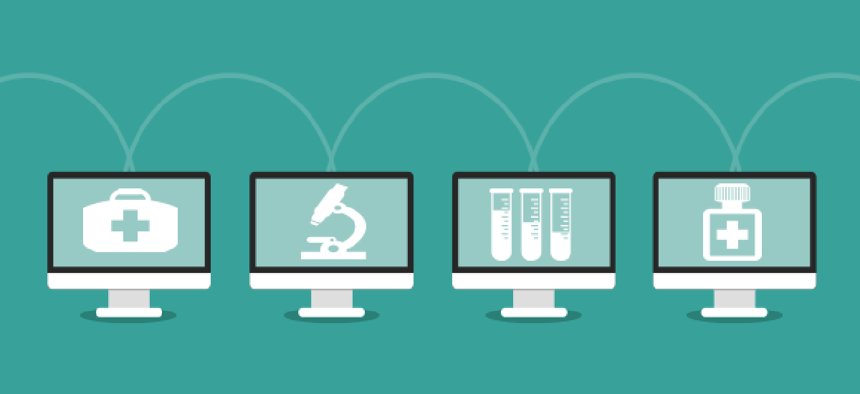Connecting state and local government leaders
The Centers for Disease Control and Prevention is experimenting with the distributed ledger technology to monitor the spread of infectious diseases in crisis situations.
Health care researchers have suggested blockchain technology as a way to securely manage patients' electronic records, track pharmaceuticals and support research for clinical trials. Now the Centers for Disease Control and Prevention is experimenting with the distributed ledger technology to monitor the spread of infectious diseases, especially in disasters when rapid, efficient data exchange is critical.
With a network of federal, state, local health agencies as well as hospitals and clinics contributing data to track disease trends, blockchain could be the solution that makes it easier to securely move all that data among partners without getting bogged down in multiple data access and privacy requirements.
Jim Nasr, chief software architect at the CDC’s Center for Surveillance, Epidemiology, and Laboratory Services, has been working on blockchain-based public health surveillance that could give the CDC a way to store and share data much faster while complying with security and privacy laws, according to an article in MIT Technology Review.
During a pandemic, for example, local health workers currently can use the CDC's mobile app to log information about patients and help officials decide which medications should be dispensed. But because personally identifiable information about patients can't be stored in the cloud without additional security measures, health workers are forced to manage that data in much less efficient manner. Blockchain, on the other hand, could give the CDC a faster way to securely store and share that data with partners, Nasr said.
Blockchain also could make it easier to quickly and reliably capture epidemiological data in disaster response where it's essential to share real-time records with CDC staff, local governments, local health workers, contractors and patients. The CDC's current legacy data management systems aren't equal to the task, Nasr told CoinDesk. "CDC was never designed to be a clearinghouse" that captures and funnels data into a central registry where it is cleaned up, validated and analyzed, he said. Blockchain offers a shared, decentralized and real-time record of truth that has significant benefits over the legacy alternatives, he added.
Nasr and his team have been working on several proofs of concept and plan to build applications next year, but first they must answer questions about which partner would maintain the ledger, who should have permission to read or modify data, and how identities of patients and health organizations should be managed on the blockchain.
CDC is working with IBM, Microsoft and Gem, an enterprise blockchain provider, on the project to speed up data management for disaster relief.
"Ultimately, disaster relief is a distributed network," Gem founder and CEO Micah Winkelspecht told CoinDesk. “It's a bunch of people on the ground who are really just trying to solve problems locally, and what they need is a really efficient way to share information and data with each other in order to do their jobs and to do it quickly."




